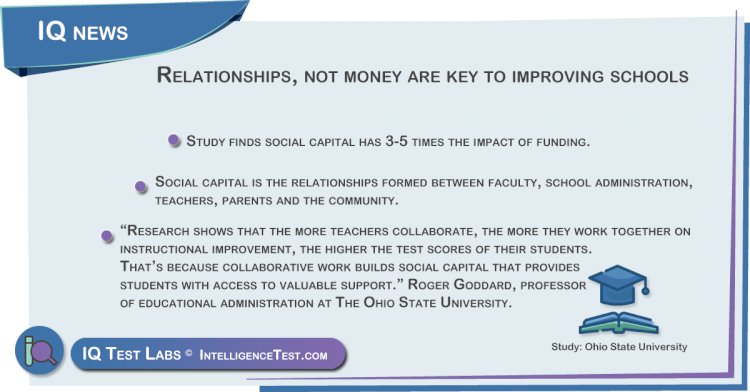Relationships, not money are key to improving schools
Study finds social capital has 3-5 times the impact of funding.

Main titles
- Financial support is not as effective as social capital when it comes to improving student learning.
- Social capital is the relationships formed between faculty, school administration, teachers, parents and the community.
“When we talk about why some schools perform better than others, differences in the amount of money they have to spend is often assumed to be an explanation. We found that money is certainly important. But this study also shows that social capital deserves a larger role in our thinking about cost-effective ways to support students, especially the most vulnerable." - Roger Goddard, professor of educational administration at The Ohio State University.
- The study is representative of the demographics of all elementary schools in the state of Michigan.
“Social capital was not only more important to learning than instructional expenditures, but also more important than the schools’ poverty, ethnic makeup or prior achievement,” - Roger Goddard.
- Roger Goddard also has some advice on how schools can cultivate social capital.
“Research shows that the more teachers collaborate, the more they work together on instructional improvement, the higher the test scores of their students. That’s because collaborative work builds social capital that provides students with access to valuable support.”
Source: news.osu.edu














